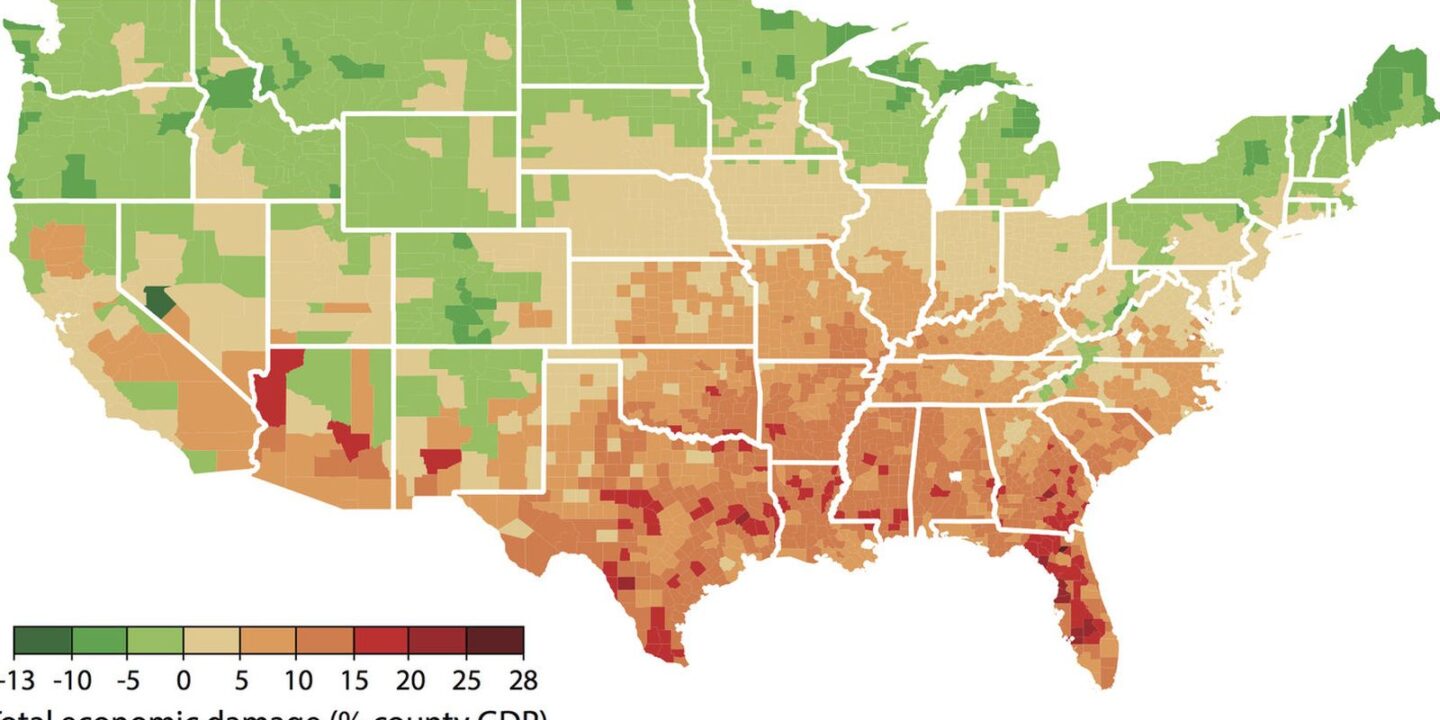
Southern and Midwestern US states will suffer the biggest economic losses from climate change, according to a new study. Some of these areas, already among the poorest in the country, stand to lose as much as 20 percent of the value of the goods and services they produce. In other words, climate change will make poverty worse in many areas.
The consequences of climate change will vary among regions in the US, according to a new study published today in Science. Counties along the Atlantic Coast will suffer the biggest losses from rising sea levels and more intense hurricanes, but the South and the Midwest — regions that already suffer from heatwaves and droughts — are threatened by hotter temperatures. Heat can slow workers, mess up agriculture, and increase energy demands and costs.
Understanding how climate change will affect the economy is key for designing policy. It also makes the threat of climate change a bit more tangible. Fighting climate change is a good investment, and doing nothing will cause the overall US economy to suffer. Each 1 degree Celsius (2.1 degrees Fahrenheit) increase in temperature may cost 1.2 percent of the country’s gross domestic product, today’s study found.
“The ‘hidden costs’ of carbon dioxide emissions are no longer hidden, since now we can see them clearly in the data,” study co-author Amir Jina, a postdoctoral scholar in the department of economics at the University of Chicago, said in a statement. “The emissions coming out of our cars and power plants are reshaping the American economy. Here in the Midwest, we may see agricultural losses similar to the Dust Bowl of the 1930s.”
Range of economic damages per year for groupings of US counties, based on their income. The poorest 10 percent of counties are the leftmost box plot. The richest 10 percent are the rightmost box plot.
States like South Carolina, Louisiana, and Florida will be heavily affected by rising sea levels. The poorest third of counties are estimated to experience the largest losses by the end of this century, the study says. This will only increase overall inequality in those areas.
In fact, states in New England and the Pacific Northwest, where temperatures are generally cooler, could even benefit from warmer temperatures and longer growing seasons. Some counties here could see economic gains of as much as 10 percent or more of their gross county product. But all over the US, the situation is more dire: each 1 degree Celsius increase in temperatures could cause yields in agriculture to drop by about 9 percent. And heatwaves could cause more people to die, the study says: each 1 degree Celsius increase would increase mortality rates by 5.4 deaths per 100,000 people.
The findings are based on climate projections that always leave room for uncertainty. The study also estimates future economic impacts under a business-as-usual approach, but it could be that the world’s countries decide to swiftly change course, and stop burning fossil fuel. That’s what a group of optimistic scientists is hoping the world’s 20 major economies — and major polluters — will pledge to do this week at a meeting in Hamburg, Germany.
Climate change is costing you money
How climate change is costing America money:
Posted by Verge Science on Thursday, June 8, 2017







